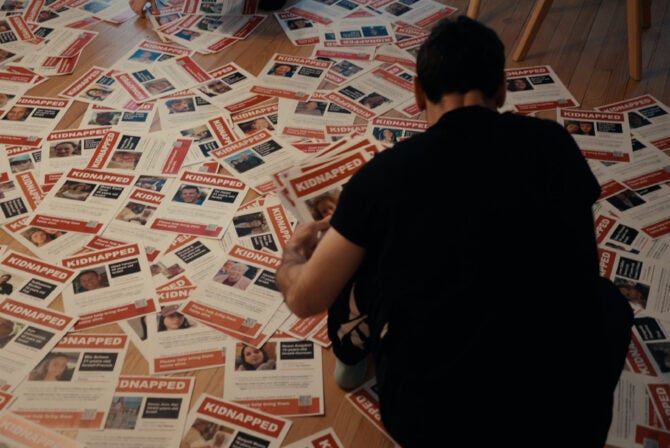My husband would never call me stupid. Never say I’m horrible. Would never question my competence, predict I’d fail, or wish me ill. Or would he?
And worse, would I ever say those things to him?
If you’d asked me those questions a few months ago, I would have answered with an emphatic no! My husband and I support each other, I’d have said; we treat each other well, with consideration and respect. I’d have said that I’ve seen some couples over the years who related to each other with rudeness and contempt, but that wasn’t us. Or was it?
Somehow, over the years, we’d allowed appalling rudeness to creep into one area of our life. First, a little background.
Or, rather, backgammon. This Middle Eastern game was a favorite of my parents; I remember falling asleep as a child to the sound of the pieces clicking as they played. When my husband and I met, I introduced him to the game, and he soon became an aficionado, too. We got in the habit of playing in the evenings—it was a fun way to unwind, and some of our best conversations have started as we chat while rolling the dice and moving our pieces.
With all that playing, we’ve gotten better over time, too—and taken it more seriously. On Shabbat, we play whole backgammon tournaments. Over the years, we’ve developed a bunch of fun traditions around our game. When we bought a beautiful wooden backgammon board from Israel, we started using Hebrew words—sheshbet instead of backgammon—while we played. When he won, my husband would do a victory cheer. I hummed a backgammon victory tune. He adopted a stuffed animal as a mascot, perched alongside the board each time we played.
But some of our backgammon traditions were a little less benign: Trash-talking banter began to creep into our backgammon games. “Are you kidding me?” “How dare you!” “You couldn’t win if you tried!” “Can’t you count—what’s wrong with you?”
Whereas we’d never dream of saying such rude things to each other in “regular” life, belittling comments like these increasingly marred our games.
One day, we’d finished playing a mega-tournament, but instead of having fun, I felt awful. All our negative banter had left a terrible feeling behind. The game was over, but the effects of the rude things we’d just said seemed to linger in the room.
I thought of something I’d once read by New Yorker columnist Adam Gopnik, who spent a year living in London as a child. He wrote he was struck by the extreme politeness of the children in his neighborhood: Each weekend, as the neighborhood kids played soccer together, they’d indulge in what Gopnik described the opposite of the usual sports-related trash-talking. He dubbed it “tidy-talking” instead. “Well done!” he recalled the British kids saying or, when something went wrong, “Oh, bad luck!”
That night, I told my husband about Gopnik’s comments—and gave him an ultimatum: no more backgammon games unless we replaced our traditional banter and trash-talking with “tidy-talk” instead. Perhaps my husband too sensed we’d become too negative. Maybe the prospect of backgammon-less evening terrified him. Either way, he agreed.
At first, it seemed funny. “Oh, unlucky!” my husband said in a mock English accent when I rolled a terrible combination. “Jolly good!” I replied when he made an advantageous move. Soon, though, our tidy-talk became more earnest. “That was great!” “Good job!” “Well played!” The more encouraging our comments became, the more we enjoyed our games. Soon, I felt the way we related to each other overall was warmer and more supportive. After a game, we’d both be in great moods, continuing the conversations we’d begun in a positive way. “Well done!” became a common phrase—not only during backgammon games, but afterwards, too.
The change felt so huge, I confided in a friend about our new resolution. “We’d got so used to saying rude things to each other!” I told her and she paused, thinking. “We do that, too,” my friend said slowly, “when we bicker—it used to be funny, but now I find we’re fighting all the time.” Another friend had a similar reaction. “I say outrageous things when I’m upset,” she pointed out. “I do it to be funny, but sometimes I think I’m crossing a line.”
If you’d asked any of us years ago when we first married, “Will you one day start calling your husband names, belittling him, making fun of him?” we’d all have been aghast and said no! In each of our cases, it took years to develop—years to carve out spaces in our lives where we felt that what we said didn’t matter, where we were somehow exempt.
In my case, it took a while to get used to our new, politer way of speaking. At first it felt unnatural and stilted, but with practice, incorporating more encouraging phrases—even in the heat of intense backgammon games—became second nature. The thought of looking my husband in the eye and telling him he’s a terrible player seems inconceivably cruel and unsportsmanlike now. After months of tidy-talking (and avoiding trash-talking taunts), speaking politely and encouragingly seems to be a lot easier. As my husband might say, “Jolly good—well done!”
Read More:
My Daughter Made Me Cry and I’m So Grateful
Your Kids Are Not That Special (And That’s OK)
I Think It’s OK That My Daughter is a Brat







